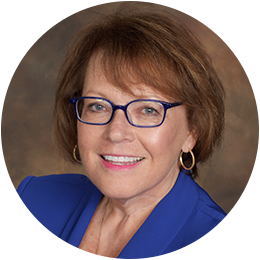
I don’t know about you, but I love the start of a new year. It feels like I have a clean slate and can leave the mistakes and mishaps of the previous year behind, I have a fresh new calendar, some new resolutions that I’m planning to keep – in short, I have high aspirations of what I want to accomplish professionally as well as personally in the new year.
As we anticipate and plan for our new year, there is one thing that we can be certain of – we will continue to face challenges and change. How well we react to the changes in our worklife is an indicator of how effective we will be in our profession. And I think that this spills over into our personal lives as well. Some of us celebrate how technology has changed the way we live our lives – and others lament those changes. I will admit that there are some things that I miss (it was nice when a family sat down to dinner without their iPhones) – but I’m very happy to be able to order almost anything that I want from Amazon and receive it in a day or two.
So – when I was thinking about changes in our world – and especially in our worklife, I went back almost 15 years (to 2005) and looked at a chapter from a book that I wrote then (the book was “101 Smart Things Every Medical Staff Services Professional Should Do” and it was co-written with Peggy A. Greeley). The chapter was “The Next Horizon” and it was predictions on how things would change for Medical Services Professionals. Here are our predictions from 2005:
1. The medical staff office will use less paper:
- Credentials files will be stored electronically
- The medical executive committee packet will be sent out electronically
- The medical staff bylaws will be virtual
- Committee minutes will be electronic
- Communication with medical staff members will be via a medical staff organization web page.
2. Medical Staff leadership will become more professional:
- “Volunteer” positions will be augmented with physicians compensated to perform necessary work
- Medical staff leadership position terms will become longer and more focused
3. Physicians will continue to migrate toward ambulatory practice which will:
- Decrease the number of truly active staff members
- Create increasingly complex credentialing and political dilemmas
- Challenge traditional medical staff structure and function
4. Increasing numbers of physicians will be formally aligned with the hospital by virtue of employment, contract or agreement.
5. Many medical staff coordinators will morph into “directors” with more extensive influence upon hospital operations.
6. Internal communication and data exchange will become critical roles of the medical staff office.
7. The Joint Commission will continue to exist but will be one of many sources of external validation of excellence.
8. Complex legal issues will continue to challenge the hospital and its staff. Medical Services Professionals should develop strong relations with hospital and medical staff attorneys (or become attorneys themselves).
9. The number of physicians in high-level administrative positions will continue to increase (VPMAs, COOs, CEOs, CMOs, VPs of Quality, etc.).
10. Traditional medical staff organizations with the array of officers, departments and committees will become obsolete. However the need for credentialing and privileging won’t become obsolete (and will, in fact, become more important) but the traditional organizational structure will become less important.
I think that the above list is still pretty valid. Today I would add to it:
11. There will be more centralization and standardization of services.
- Enrollment will be added to the scope of services provided by what we have called “CVOs” in the past and are rapidly becoming Provider Data Departments that are responsible for credentialing, privileging, enrollment and additional responsibilities.
12. We will grapple with what the use of telemedicine/telehealth means in our organizations as technology changes the privileging landscape.
And finally…
13. Those Medical Services Professionals who are proactive, who create change when it is necessary and who thrive on challenges will continue to achieve success for themselves, for their organizations – and ultimately, accomplish the goal of being the gatekeepers of patient safety for their organization!
I hope that your new year is off to a great start – enjoy your fresh start!
